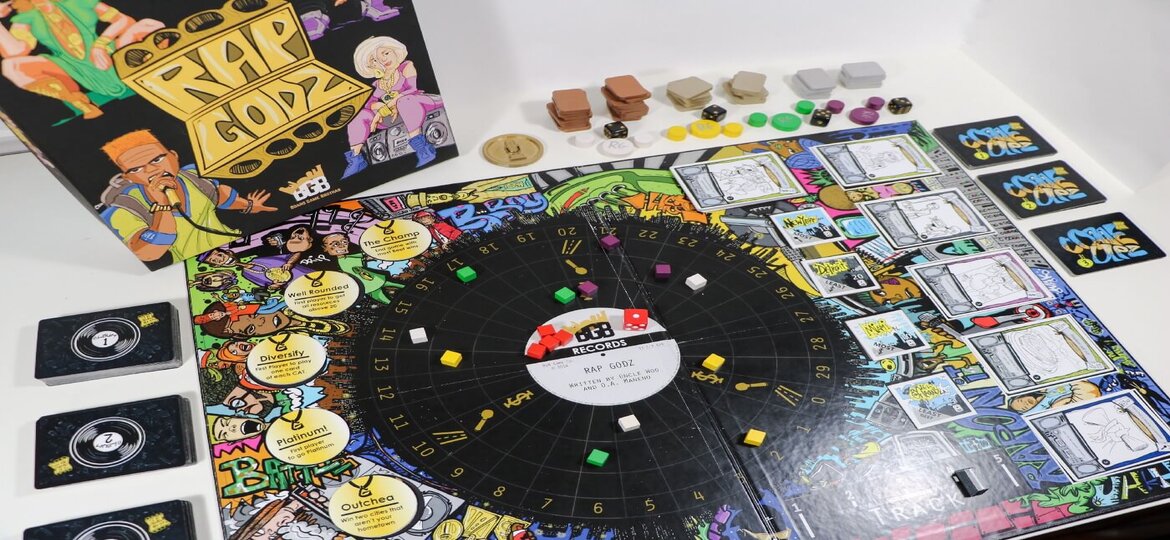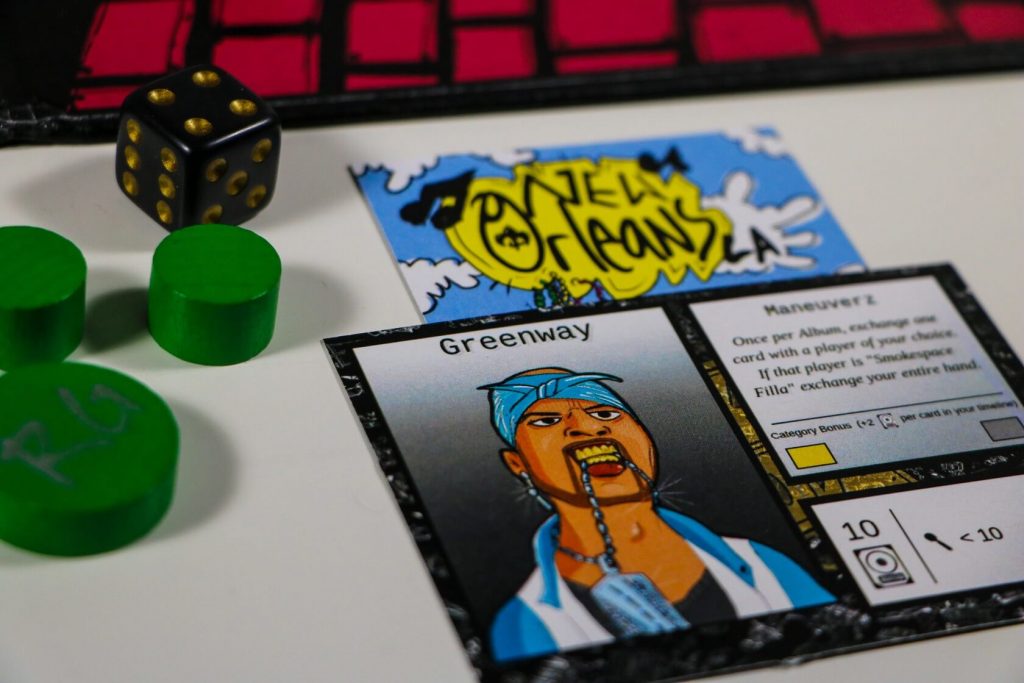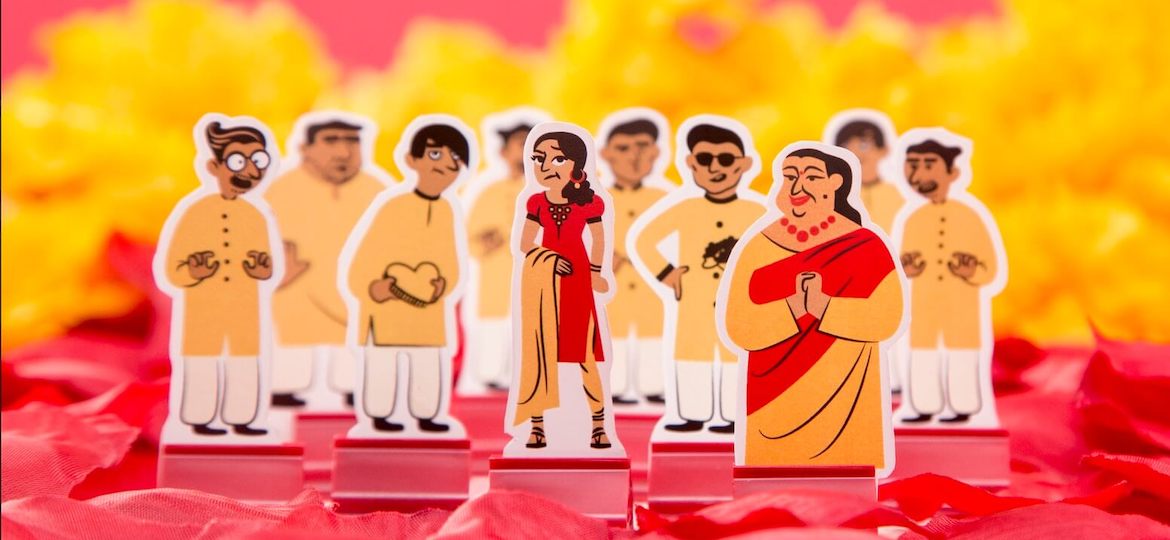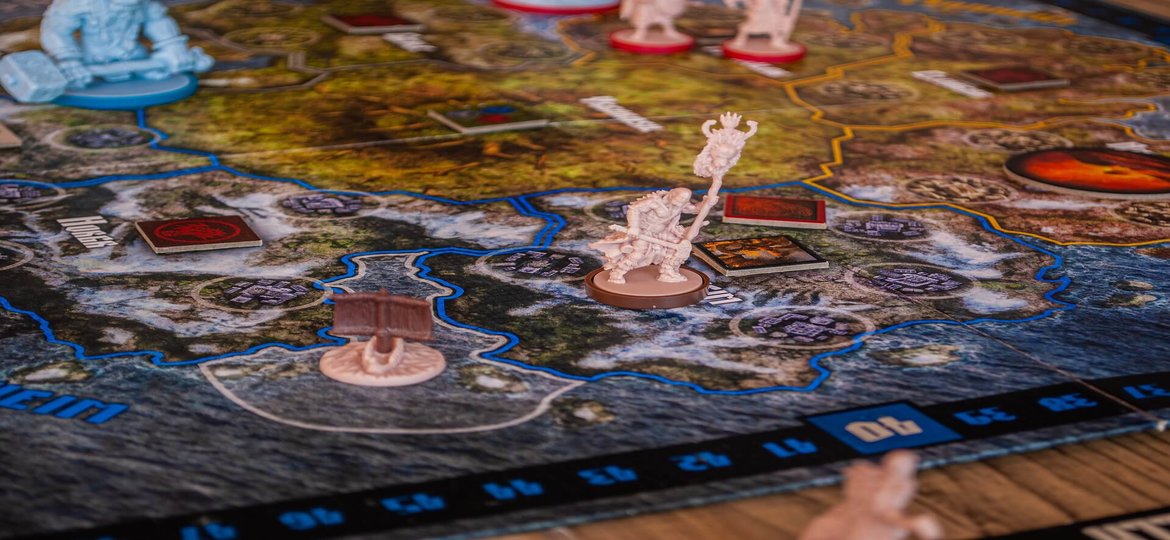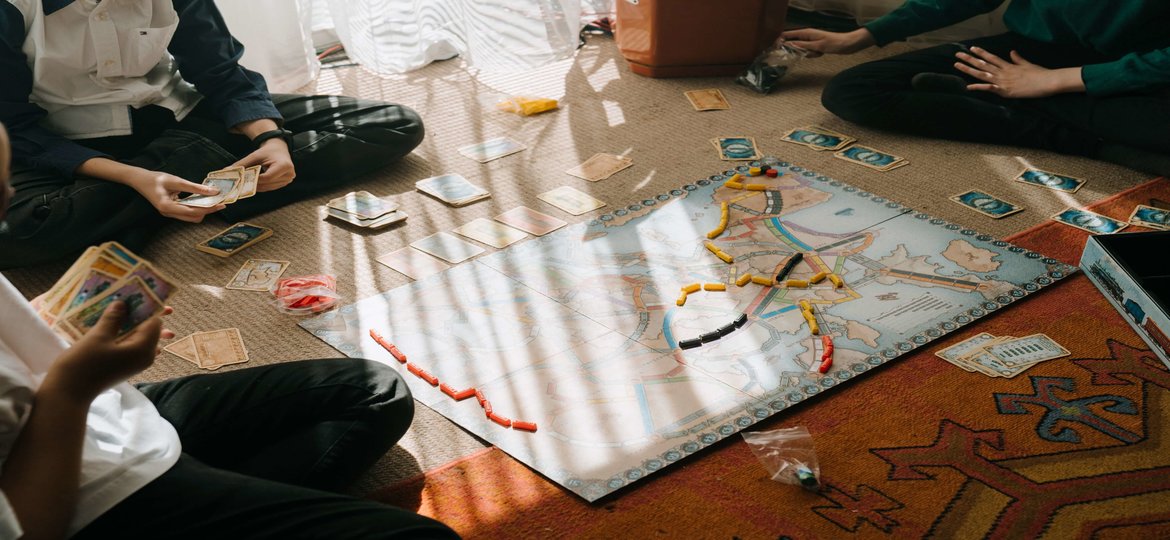Last time on Brown Geeks, game designers of color (DOCs) discussed how representation matters in gaming.
Recapping the designers involved:
- Omari Akil is a writer and marketing consultant, and one of the co-founders of the publishing company Board Game Brothas. Earlier this year they successfully Kickstarted their first game called Rap Godz, a light weight Euro-style game about hip-hop culture.
- Jason Serrato is the co-founder of Horseshoe Games, and the author of Army vs. Aliens as well as the recently released Thug Life, a combat game about urban crime bosses and their rivaling gangs.
- Al Gonzalez is a graphic designer and video editor with a passion for game design. He runs the publishing house Mentha Designs, which has released games like Cantankerous Cats and the recent Prosperitea, in which players run their own tea shop.
- Kimelia Weathers Smith is a producer for TV shows like Project Runway and Hell’s Kitchen. She designed the trivia game Brilliant or BS, which is not about what you know but about what you can make other people believe you know. As you’ll see, it also challenges your preconceptions.
- Nashra Balagamwala is a freelance designer and art director from Pakistan. She’s the designer of Arranged!, a satirical game about arranged marriages in South Asia.
- Eric Slauson is a teacher and game designer known for games like Tattoo Stories and MonsDRAWsity.
- Perry Clemens is a teacher who designed a spin-off of Monopoly called Inequality-opoly, which tries to inform players about the sensitive topics of marginalization and inequality in America.
Now onto Part Two of that discussion…
Don’t Feed the Trolls
“When I was fundraising for my game, I got a lot of hate and vicious racial comments,” Perry recalls. Strangely, people who already understand racism and sexism are encouraged by his game, but the people he made it for are actually resistant to it.
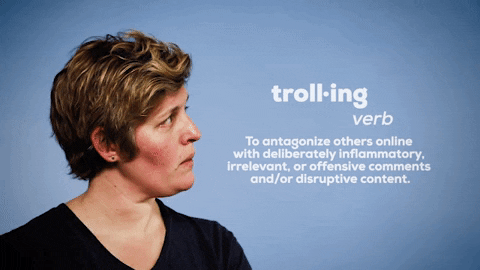
Jason is a firm believer of doubling down on the industry’s best practices when dealing with trolls.
“You shouldn’t avoid the comments, especially while fundraising,” he says. “You should listen to what people have to say, even if it’s toxic. But that doesn’t mean you should necessarily take their advice: for every one person that’s vocal, there’s a hundred people who are not.”
“I wasn’t trying to pick a fight when I chose the theme for Thug Life,” he continues. “I figured: Sopranos and Breaking Bad are super popular, so why don’t I do an urban game?”
He was surprised to see the fight coming to him. “I think what made the game specifically inciting, was that suddenly the space was forced not to be tone deaf.”
Jason also remembers a bad experience he had at Gen Con, where a publisher told him flat out that he wouldn’t put Thug Life on demo because it didn’t have white people on the box.
“I asked him if he really thought he was going to win that conversation,” Jason says. “There comes a time when you can no longer choose to be quiet.”
He concludes by saying, “You can’t tell writers what to write or designers what to design. They follow their passion and if it becomes controversial then that’s the designer’s yoke to bear. I wouldn’t stand down from that.”
In that respect, Perry loves the quote: “Those who criticize you are always doing less than you.”
For his first Kickstarter attempt, he was paralyzed by some of the feedback he received.
“They were just skewering me over and over,” he recalls. “My first campaign failed and it was hurtful to see how people were reveling in that.”
Perry even Googled how he should respond to trolls, and found advice about ‘sailing into the wind’:
“If you’re sailing on the ocean and the wind is going against you, a skilled sailor who expects the wind can actually travel faster against it than he would have if it was at his back.”
Stay True to Your Creative Vision
All panel members agree that in the end, artists have to create because they’re passionate about the process, not to gain someone else’s approval.
“As designers, there’s no obligation to do X or Y. Just because we’ve got brown skin doesn’t mean that we’re obligated to make politically-charged content or educational content. My games are mainstream because that’s what I want to do”, says Al.
“Often times you look at Gen Con and Gama and it’s all white across the board,” he continues. “If you’re a designer of color and you’re putting your game out there, you need to be receptive to putting yourself on camera and getting comfortable talking to people. Other folks aren’t going to be inspired if they don’t see us out there talking about our games. We don’t have to make giant political statements, we just have to exist and be happy to be designers.”
Omari agrees:
“How we accidentally got to this place where we don’t have representation is people weren’t reaching out, they weren’t stepping out of their comfort zone. I’m absolutely an introvert and I made a decision when I started the company that one of the first things on our list was visibility, so I took on that role. That clarity of purpose for our company and our games allows me to stay focused.”
Research is a Crucial Part of Game Design
“There’s no reason why any designer shouldn’t be able to make a game that depicts sensitive topics like race or gender,” Al says. “But there is a right and a wrong way to do it. If you’re going to use a theme, do the research and implement it the best you can.”
He gives the example of Five Tribes. In its first printing, the game contained cards that had slaves depicted on them, which could be used as resources. When the publisher started taking flak for that, they responded by replacing the slave cards with ‘safer’ fakir cards for the game’s second print run.
“That was the wrong way to handle it, because the publisher didn’t engage,” Al says. “That’s how it was in the Arabian fantasy land of A Thousand and One Nights. But they decided to brush it off and ignore people instead of having a genuine conversation about it.”
Rap Godz allows you to experience the Hip Hop industry as a rapper trying to make it big. (Photo Credit: Omari Akil)
Omari agrees that research is important, but so is seeking out experts to assist you with it.
“That’s something that’s growing in the RPG scene: cultural consultants. If your game is about Asian culture, why don’t you have an Asian consultant look at it. There might be things that jump out to them, even subconscious things that you don’t even know you’re putting in.”
Wrapping It All Up
While the board game community primarily focuses on analog gaming, it has a large online presence. And where there’s a large online presence, there will always be controversy and polarization, bigotry and intolerance.
As a male Caucasian living in a progressive country, racism and sexism isn’t exactly something I often encounter first hand. I must admit that before watching this year’s Comic Con panel on diversity in tabletop gaming, I wasn’t consciously aware of many of the issues that were being raised by the panel.
While huge strides have been taken over the past century in terms of equal rights, both race and gender have always been polarizing topics – and will continue to be. That’s why it’s of the utmost importance that we don’t overlook small indie games: they might have an important message to convey.
Next time I’m at a convention, you’ll be able to spot me pretty easily. I’ll be checking out the smaller booths, playing indie games and listening to their stories. Hit me up if you want a spot at the table.
Learn more about our panelists:
Omari Akil: www.boardgamebrothas.com
Kimelia Weathers Smith: www.brilliantorbs.com
Perry Clemens: www.inequalityopoly.com
Eric Slauson: www.bicyclecards.com/product/tattoo-stories
Al Gonzalez: www.menthadesigns.com
Jason Cerrado: www.thuglifegame.com
Nashra Balagamwala: www.nashra.co/store/arranged
The Brown Geeks Panel on Voice Talent and Diversity
If you enjoyed this discussion on diversity in tabletop gaming, consider joining us on Monday, September 14th at 1 PM PDT for our Chi and Cocktails industry discussion on Hollywood voice talent. We’ll be joined by voice talent Suzi McGarth (Star Wars Resistance), Christopher Sean (Gotham Knights), and America Young (Gotham Knights).

